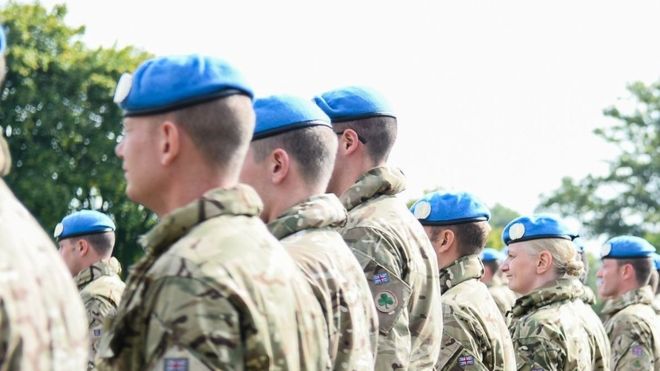Theresa May: UK will send more troops to Somalia to fight Al-Shabaab

Prime Minister Theresa May has pledged to increase Britain’s support for Somalia in the fight against militant group Al-Shabaab.
In her maiden speech to the General Assembly in New York, Mrs May said that Britain had played a “leading role” in the fight against the militants.
She said the UK would send more troops to train local forces to fight militants, with some 30 training teams being deployed to the African country, with up to 70 troops at a time involved in the mission.
She added that no country had been “left untouched by global terrorism”.
Since 2010, with huge support from across the region, and critically the commitment of Somalis themselves, al-Shabaab has been driven from all the major cities it used to control.
It is vital that as an international community we continue to support countries in the region that are contributing thousands of troops, and that we continue to build the capacity of Somali security forces.
The plan involves £7 million of funding to improve the skills of Somali and African Union mission in Somalia (Amisom) forces on tasks ranging from tackling improvised explosive devices to building roads to help improve security in areas outside of the capital Mogadishu.
The deployment of up to 30 short-term British training teams, each containing between five and 30 personnel depending on the role, will provide a “significant uplift” in the UK’s involvement in the country. Previously there had only been 12 training missions planned, with two deployed at present.
A new UK headquarters will be set up in Mogadishu with seven personnel. The UK will also host an international conference on Somalia early in 2017.
The UN general assembly has been dominated by the migration crisis and Mrs May set out the principles guiding her approach – including that refugees should claim asylum in the first safe country they reach and nations have a right to protect their borders.
Mrs May added that protecting borders and managing migration was also essential to address the “whole spectrum of extremism”.
She said all nations must do more to support countries where refugees first arrive.
She also called for a better distinction between genuine refugees and economic migrants.
She said: “By ensuring a managed and controlled international migration response – and at the same time investing to tackle the underlying drivers of displacement and migration at source – we can reject isolationism and xenophobia, achieving better outcomes for all of our citizens – and particularly for the most vulnerable.”
She also called on the United Nations to “modernise and adapt” in order to fight the challenges of the 21st Century especially terrorism.
itv